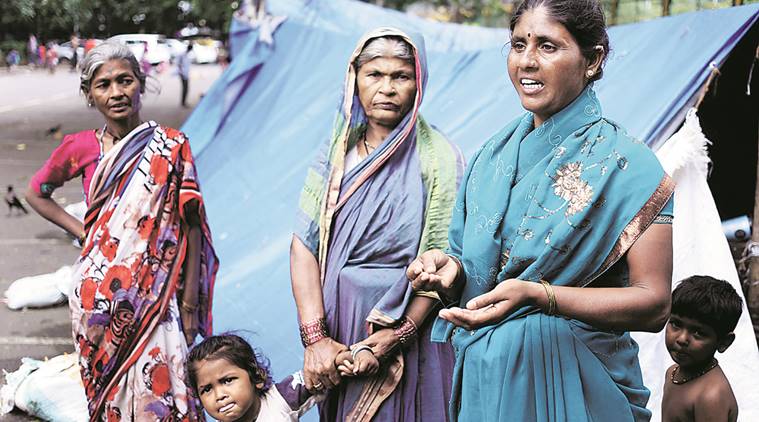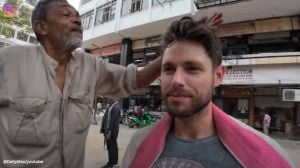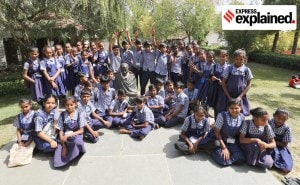- India
- International
Mumbai: In a slum near Mantralaya, Pardhis struggle to make ends meet
The slum is home to almost 300 people, all of whom belong to the Mahadev Pardhi community. The residents of the slum do not have fixed sources of income.
 The slum near the Mantralaya depot is home to almost 300 people, all of whom belong to the Mahadev Pardhi community. Express photo by Nirmal Harindran
The slum near the Mantralaya depot is home to almost 300 people, all of whom belong to the Mahadev Pardhi community. Express photo by Nirmal Harindran
WHEN PARVATIBAI Kale’s father had moved to Mumbai from Solapur about 50 years ago, he thought the family had escaped destitution. He was one of the first among the Pardhis to come to Mumbai.
“However, our lives have not been any better here,” said Parvatibai, who is now 52 years old and lives in a temporary settlement near the Mantralaya depot.
The slum is home to almost 300 people, all of whom belong to the Mahadev Pardhi community. The residents of the slum do not have fixed sources of income.
The families live off occasional masonry work and by selling toys at the Marine drive. The women sometimes earn by selling garlands. Some women also work as housekeeping staff at the Mantralaya.
“We don’t get work everyday but if we do, we make about Rs 300 a day,” said Sardar Chavan (45). It is not enough to get by for a family of seven, said his wife Surekha.
[related-post]
Watch Video: What’s making news

As most of the people in the slum are uneducated, the scope for employment is less. In the slum, the first group of people to go to school is the present generation, and they began doing that only three years ago.
Mahadev Pardhi is a sub-caste of the Pardhi community, which is a de-notified nomadic tribe (DNT). However, Mahadev Pardhis are not nomadic people, said 30-year-old Mangal Chavan, who has lived in the slum all her life.
Traditionally, the Mahadev Pardhis reside in shanties on the outskirts of the village in Rajasthan and do not migrate, she said. Traces of their Rajasthani origin can be seen in their language, a mix of Marwadi and Gujrati. They work in fields or take up menial jobs in the village but for the past few years it has been difficult to find work in the village.
“Owing to the drought, there’s hardly any work in the fields. So more and more people are moving out of the village,” said Surekha.
Most of these people go to the village only once a year during Dussehra. “It is our biggest festival. We fast for nine days and make offerings to Khodiara Devi,” she said.
The Pardhi tribe was notified as ‘criminal’ under the British India Law of Criminal Tribes Act, 1871. Although the tribe was de-notified in 1952, people from the community live in abject poverty, amid discrimination and without education, according to Sahitya Akademi-winner and social activist Laxman Gaikwad.
He said the community was originally a hunter-gatherer one.
“Since, they lack skill and vocation in any other trade, they are forced into a cycle of unemployment and poverty” said Gaikwad who has worked for the welfare of Pardhis for 40 years.
Apr 23: Latest News
- 01
- 02
- 03
- 04
- 05






































